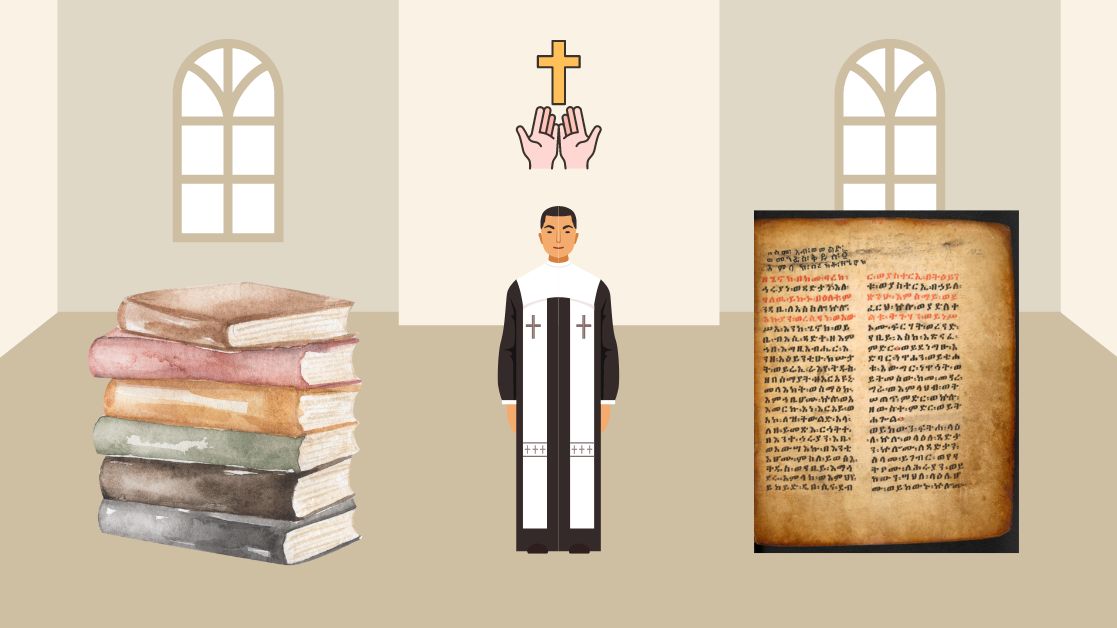The Bible comprises a collection of ancient religious writings. However, not all texts considered significant by some religious communities made it into the final compilation. One such intriguing case is the Book of Enoch, a text with a rich history and profound implications for various theological interpretations.
This article will discuss why it is excluded from the biblical canon and the ongoing debates surrounding its significance.
The Book of Enoch Overview
The Book of Enoch is an ancient Jewish religious work ascribed to Enoch, the great-grandfather of Noah, and attributed to him as its author. It consists of several distinct sections, with the first part primarily dealing with Enoch’s heavenly visions and interactions with celestial beings.
The text elaborates on the nature of angels, their hierarchy, and the events leading up to the great flood, among other revelations. Though not part of the canonical scriptures in Judaism or Christianity, it holds considerable importance in certain religious traditions.
Who is Enoch?
Enoch, the son of Jared and the great-grandfather of Noah, as mentioned in Genesis 5:18, stands out uniquely in the scriptures. Unlike others, including those who perished in flood despite the protection of Noah’s ark, Enoch did not experience death; instead, God took him up directly, as noted in Genesis 5:24.
Living seven generations after Adam and Eve, it is probable that he spoke the same language and shared a similar height with them.
Enoch’s commendation can also be found in the book of Hebrews, where he is celebrated as part of the renowned “Hall of Faith” (Hebrews 11:5).
Why is The Book of Enoch Excluded From The Bible?
The attribution of the Book of Enoch to Enoch does not guarantee its authorship by him, divine inspiration, or its inclusion in the Bible. Notably, scholars widely doubt that Enoch himself wrote the book.
Instead, a prevailing theory suggests that one section, focusing on astronomy, might have been authored by a Jewish Christian in the 2nd century AD. This individual possibly sought to present his own ideas and speculations under the guise of Enoch’s authority.
Moreover, the content of the Book of Enoch introduced theological and doctrinal challenges. For instance, some early Christian groups, such as the Ethiopian Orthodox Church, considered this text inspired and accepted it into their biblical canon. However, its teachings diverged from mainstream Christianity, potentially leading to theological conflicts and differing interpretations.
The apocalyptic and mystical elements in the Book of Enoch also raised concerns about its credibility and authenticity. Certain sections, like the “Book of the Watchers,” dealt with esoteric themes and angelology, which were inconsistent with other biblical texts.
Scholars speculate that Greco-Roman may have influenced the Book of Enoch’s thought and mystical traditions, further distancing it from the core beliefs of Judaism and early Christianity.
Bottom Line
The exclusion of the Book of Enoch from the biblical canon remains a fascinating and controversial topic. While some religious communities continue to venerate it, most Jews and Christians do not consider it a part of their authoritative scriptures.
The reasons for its omission vary, ranging from questions about its authorship and origins to doctrinal disputes and the influence of diverse theological perspectives.
Despite its exclusion, the Book of Enoch continues to influence religious thought, particularly in certain sects and esoteric traditions. Its preservation in ancient manuscripts and subsequent discovery has sparked renewed interest in understanding its historical context and theological significance.




